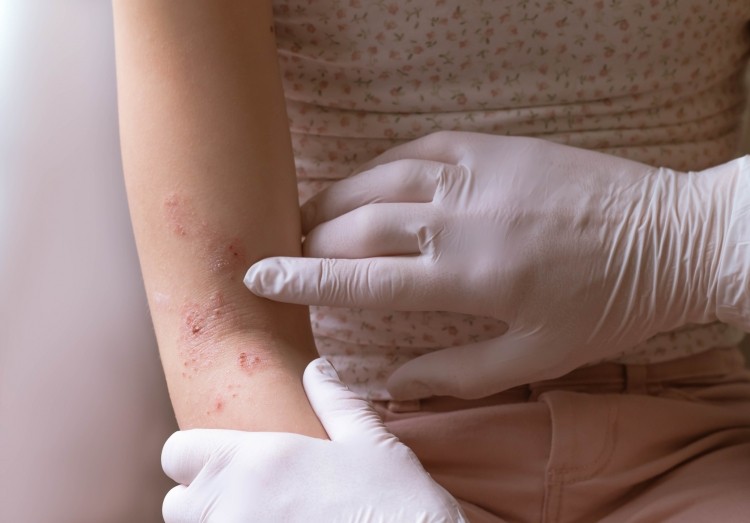LGG offers skin health benefits for children with eczema: Study

The short-chain fatty acid butyrate is vital for healthy skin and low levels lead to gut dysbiosis, which often precedes AD onset. However, consumption of LGG in infants aged six to 36 months achieved the minimum clinically important difference (MCID) after 12 weeks, with benefits on AD severity sustained at 16 weeks, according to a new study.
This suggests “a persistent modulation of AD in subjects treated with LGG”, the authors wrote in Paediatric Allergy and Immunology.
They commented: “Specific probiotic strains could modulate inflammatory response counteracting microbiome dysbiosis and immune dysfunction in AD. The results of our study suggested a potential involvement of a parallel modulation of gut and skin microbiome.”
The study was funded by DSM I-Health Inc, marketers of the Culturelle brand of probiotics.
Modulating colonisation
Gut and skin dysbiosis are considered implicit in AD pathogenesis and experts have proposed modulating gut colonisation with probiotic supplementation as a possible solution.
“Emerging evidence on gut and skin metabolomic features in AD patients suggest the microbiome role in modulating AD occurrence and disease course and support the relevance of the ‘Gut-Skin Axis’,” said researchers from the University of Naples Federico II in Italy.
LGG has been widely studied in the prevention and treatment of various atopic diseases but there is no clinical evidence demonstrating a therapeutic role in treating AD.
The Italian research team designed a Probiotic for Paediatric Atopic Dermatitis (ProPAD) trial to evaluate the efficacy of regular intake on children, as an adjuvant treatment. Results showed that supplementation reduced the Scoring Atopic Dermatitis (SCORAD) index and topical steroid use and improved the quality of life in subjects.
AD profile and protocol
A total of 91 children completed the study, with probiotic compliance of at least 80% in the treatment group. The severity of AD was assessed using the SCORAD index.
Parents completed the IDQOL at baseline to determine the dermatitis severity and life quality index in the previous week, based on their opinion. Parents were asked to keep a diary to monitor daily intake, use of emollients and AD medication, as well as adverse effects.
Subjects had received a diagnosis of AD prior to the trial and were assigned to placebo Group A (45) or treatment Group B (46) and administered one capsule per day for the study period. The probiotic contained 1 x 1010 CFU LGG.
A full clinical evaluation was carried out every month, including SCORAD index and IDQOL assessments, diary checks and compliance measures. Blood, skin swab and stool samples were taken at baseline and 12 weeks.
Treatment was deemed well tolerated by all subjects, with no adverse effects reported.
Probiotic efficacy
The researchers note that Group B achieved higher MCID at 12 and 16 weeks (and remained higher). Subjects in the treatment group also managed longer periods without AD medication and showed improved IDQOL at 12 weeks.
SCFAs potentially modulate the abundance of skin microbiome, which influence immune mechanisms, the authors say, and might explain increased levels of Prevotella and Veillonella and reduced levels of Stenotrophomonas at 12 weeks.
“Consistently, previous study reported reduced levels of Prevotella in skin microbiome of AD children. These results suggest the efficacy of LGG supplementation in restoring skin microbiome eubiosis,” they write.
Preventive measures for the COVID-19 pandemic applied during the study period may have influenced outcomes, they add, but nevertheless, results demonstrate efficacity of LGG as an adjunctive therapy in paediatric AD.
“The beneficial effects on disease severity and quality of life paralleled with a beneficial modulation of gut and skin microbiome,” they said.
Source: Paediatric Allergy and Immunology
Published online August 1, 2022: doi: 10.1111/pai.13836
‘Therapeutic effects elicited by the probiotic Lacticaseibacillus rhamnosus GG in children with atopic dermatitis. The results of the ProPAD trial’
Authors: L. Carucci, et al.





